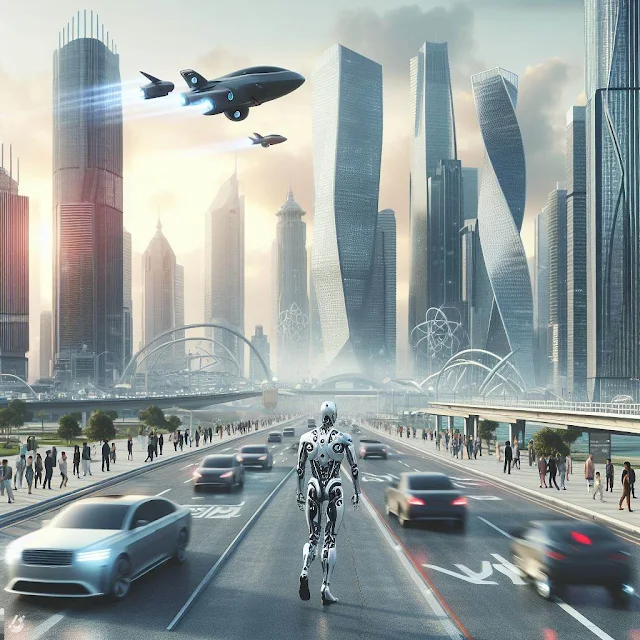The AI Revolution: Transforming Human Life and the Environment
In the digital age, artificial intelligence (AI) has emerged as a game-changing technology, revolutionizing human lives and the environment in unprecedented ways. This article will delve into the profound impact of the AI revolution on our daily lives and the world around us.
AI
and the Evolution of Human Life
Every day, AI systems are becoming more integrated into our lives, often without us even noticing. From our smartphones' virtual assistants to personalized recommendations on streaming platforms, AI is reshaping how we live, work, and play.
Personalized
Experiences
One of the most visible effects of AI in our daily lives is the rise of personalized experiences. By analyzing vast amounts of data, AI systems can understand our preferences and behaviors, providing us with tailored content and services. This has revolutionized industries such as e-commerce, entertainment, and healthcare, delivering a more convenient, efficient, and personalized user experience.
Work
Transformation
AI is also transforming the workplace. Automation technologies are streamlining routine tasks, freeing up employees to focus on more complex and creative aspects of their jobs. Meanwhile, AI-powered systems are providing decision-makers with valuable insights, enhancing strategic planning and decision-making processes.
Healthcare
Advancements
In healthcare, AI is opening up new possibilities for early detection and treatment of diseases. Machine learning algorithms can analyze medical images or genomic data with a level of precision and speed that surpasses human capabilities, potentially saving countless lives.
Climate
Change Mitigation
AI's ability to analyze large datasets is instrumental in climate change mitigation. It can predict weather patterns, optimize renewable energy production, and model climate change scenarios. This information can inform policy decisions and help create more sustainable societies.
Wildlife
Conservation
In wildlife conservation, AI-powered drones and camera traps are being used to monitor and protect endangered species. These technologies can identify and track animals, providing valuable data for conservation efforts.
Resource
Management
AI is also being used to manage resources more efficiently. For instance, in agriculture, AI can analyze soil and weather data to optimize irrigation and fertilization, reducing water and chemical usage.
Conclusion
In conclusion, the AI revolution is having profound effects on human life and the environment. As AI technologies continue to evolve, they hold the potential to address some of the world's most pressing challenges. However, it's crucial to ensure that these advancements are guided by ethical considerations to avoid potential pitfalls and ensure a future where AI serves the greater good.











.jpg)






0 Comments